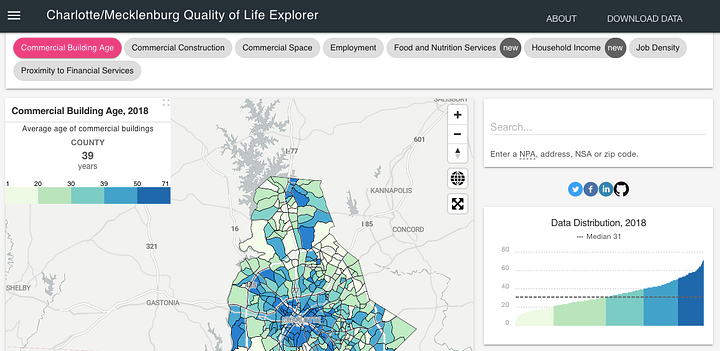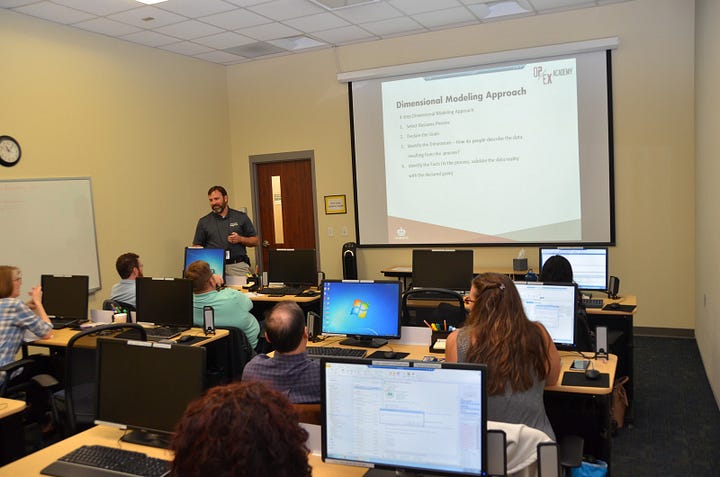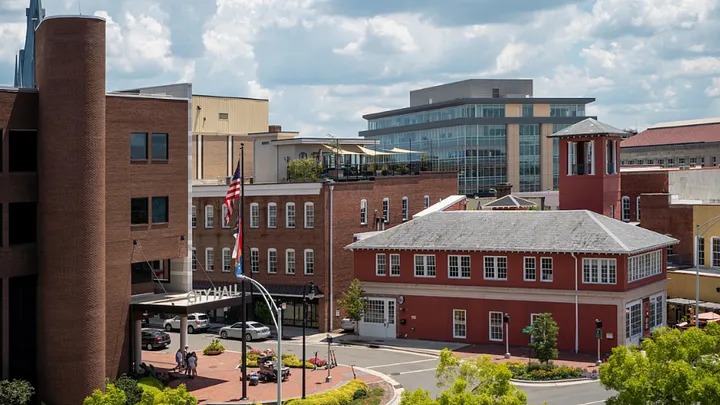Raleigh, North Carolina, USA
1,000 Trees Rooted in Data, Community and Sustainability.
Project Type:
Community Engagement, Environment, Health and Wellbeing, Infrastructure and Utilities, Technology

At a Glance
The City assessed tree distribution citywide to plant 700 new trees in areas that needed the most shade.
Raleigh’s Digital Inclusion education program has trained more than 3,800 residents, provided more than 1,000 computers to residents, and delivered more than 10,000 volunteer hours.
A biannual community survey gathers input from residents on issues that impact quality of life, which guides services and policies.
A cost-share program reduces water pollution and has helped fund more than 200 stormwater infrastructure projects (such as green roofs, cisterns, and rain gardens) on private property. Up to 100% of costs are covered for non-profits and lower income property owners.
For over 200 years, Raleigh has been known as the “City of Oaks” for its towering oak trees that line streets and shade neighborhoods. Yet today, the city, which has long celebrated its natural canopy, confronts a stark reality: More than a quarter of people in the Raleigh metro area live in neighborhoods that become heat islands in the summer, where temperatures soar above the city’s average.
Those extra degrees have a high cost — heat islands make neighborhoods less livable and increase the risk of heat-related health complications. These heat islands are disproportionately located in low-income neighborhoods. One reason for the heat islands is a lack of trees, which results in heat being absorbed in materials like concrete and asphalt. This heat is then slowly released causing temperatures to stay high even after the sun sets, making it difficult for neighborhoods to cool down overnight. This prolonged heat exposure can exacerbate the effects of heat stress and lead to higher energy costs and poorer air quality.

Today, the “City of Oaks” is working to combat heat islands through a data-backed street tree planting project.
At the start, the project wanted to learn how trees were distributed across the city. Then, the team wondered if planting more trees in certain locations could reduce the number of heat islands
The City analyzed U.S. Census data and an Urban Heat Island study. Then it conducted a walking survey of Raleigh’s current street trees. City staff mapped tree density and income levels, which showed that lower income neighborhoods had fewer trees than their wealthier counterparts. On average, there is one street tree every 1,000 feet in the chosen priority area, whereas other, newer parts of the city have street trees every 40 feet.
“Strong data practices have made us a better organization. We’re able to better connect with the community because there are decisions that are made based on what the data tells us. That data gives us a solid foundation to drive policy and resources.”
“I am proud but not surprised that Raleigh continues to achieve recognition for effectively using data and science to drive outcomes. I am also proud of our staff and their devotion to developing the data and using it to implement the solutions that improve the lives of our residents. This designation from Bloomberg Philanthropies is a result of their hard work.”

The City’s solution is to plant 1,000 street trees by the end of 2025, not located randomly across the city, but in the neighborhoods that need it most to reduce urban heat islands. Urban trees and nature can cool cities by up to 14 degrees Fahrenheit, which makes heat-related illness less likely and reduces energy consumption, saving residents money. So far, 700 trees have been planted in low-income neighborhoods in southeast Raleigh, helping make the air cleaner, preventing flash floods during storms, absorbing carbon dioxide, and encouraging communities to gather and play outdoors.
Raleigh city staff know their numbers, but they aren’t missing the forest for the trees—community support and resident engagement are critical for long-term success. The project has connected with residents at community events for Earth Day and Arbor Day. Additionally, residents near potential tree planting spots receive paid-postage mailers from the City that allow them to select the tree species they want or say that they would not prefer a tree.
The Street Tree Project is just one piece of Raleigh’s climate efforts, and it represents more than a tree planting initiative — it’s a data-based strategy to ensure that all residents, no matter where they live, can share in the benefits of the City of Oaks.




